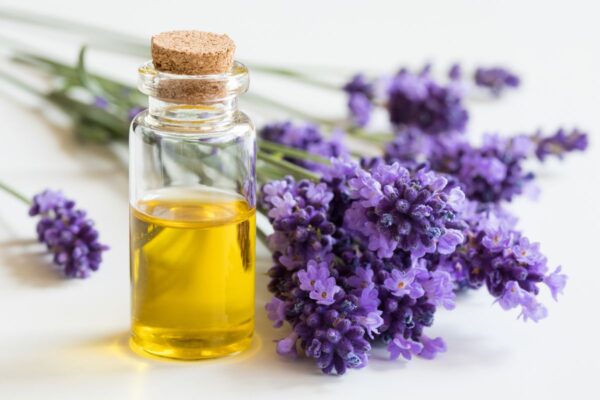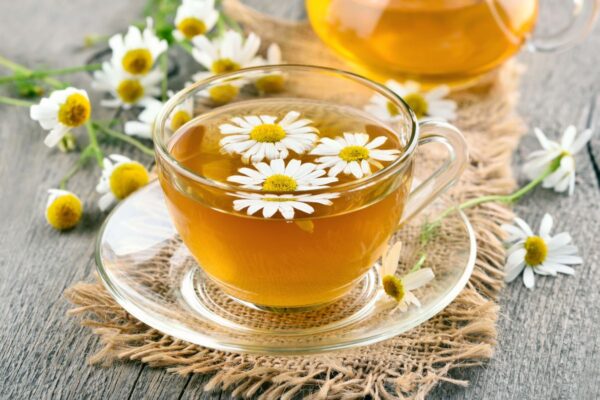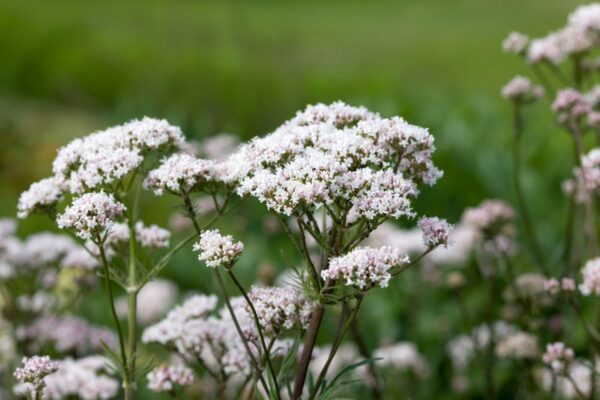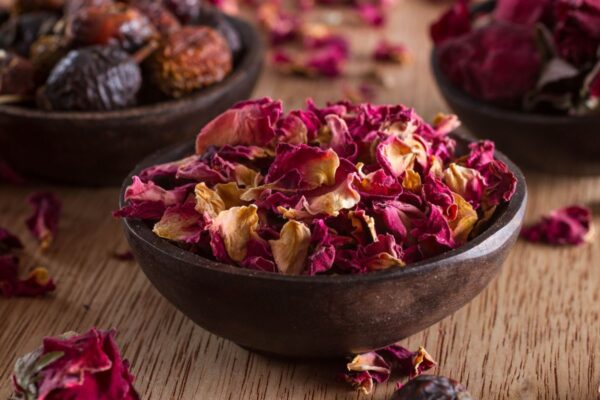Sleep is not just the body’s rest—it’s a sacred passage into the feminine realm of renewal, intuition, and creation. For centuries, women have turned to the plant kingdom as allies in this nightly ritual. Sacred plants whisper wisdom to our bodies, soften the mind’s chatter, and open the door to deeper states of rest. In herbal medicine, we discover not only remedies but also rituals—reminders that sleep is holy, sensual, and deeply feminine.
The Feminine Way of Sleep
In the feminine way, sleep isn’t forced or checked off a to do list. It is invited, courted like a beloved guest. Our ancestors knew this. They didn’t separate medicine from ritual; they blended them. A cup of tea was a prayer.
A fragrant herb tucked under the pillow was an offering. To work with plants is to return to this sacred rhythm of receptivity, where sleep is not an obligation but a sanctuary.
Sacred Plants for Rest and Renewal
Lavender

The quintessential feminine flower. Its calming fragrance eases anxious thoughts and soothes the nervous system.
In a 2019 study published in Phytomedicine, lavender oil was shown to reduce cortisol (the stress hormone) and improve both sleep quality and duration. Simply inhaling lavender before bed lowered heart rate and promoted deeper slow-wave sleep.
Chamomile

Gentle, nurturing, and motherly. Chamomile carries the energy of being cradled, dissolving tension in both belly and mind.
Research in Molecular Medicine Reports (2016) shows that chamomile binds to GABA receptors in the brain, the same calming pathways activated by sleep medications—without the side effects. Participants who drank chamomile tea twice daily reported significant improvements in sleep quality within two weeks.
Valerian Root

The wise grandmother plant. Strong, grounding, and powerful in helping the restless body slow down.
A review in The American Journal of Medicine found valerian root shortened the time it takes to fall asleep and improved sleep continuity, especially for people experiencing insomnia.
Passionflower

A plant of beauty and stillness, passionflower quiets overactive thoughts.
A 2011 clinical trial published in Phytotherapy Research found that drinking passionflower tea daily for one week improved subjective sleep quality in healthy adults. It works by increasing levels of GABA in the brain, easing anxiety-driven sleeplessness.
Rose

More than a symbol of love, the rose is a heart-medicine that balances emotions, eases grief, and opens us to the sweetness of rest.
While less studied for sleep directly, rose essential oil has been shown in Complementary Therapies in Clinical Practice (2014) to reduce anxiety and blood pressure in patients—two key factors that prevent deep rest.
Sleep as a Feminine Ritual
When we pair sacred plants with intentional ritual, sleep becomes more than a habit—it becomes devotion. Light a candle. Brew a tea. Massage warm oil into the body. Place a flower under your pillow. Whisper your desires into the night. These gestures remind your body that you are safe, cared for, and ready to enter the mystery of sleep.
Why Feminine Wisdom Matters Now
We live in a world that glorifies hustle and doing more. In sleep, we replenish ojas—the essence of longevity, radiant glow, and vitality. In sleep, our intuition strengthens, our beauty regenerates, and our dreams carry guidance for our waking life.
When women reclaim sleep as a sacred feminine act, the whole world benefits. A well-rested woman is luminous. If you’re ready for more energy, mental clarity, and calm, I invite you to join me inside The Sleep Sanctuary. We open on the autumn equinox, with a year-long membership where you’ll be guided to deeper states of healing and restoration through sleep.
Disclaimer
These reflections on herbal plants and remedies for sleep are meant to inspire and guide you on your wellness journey. They are shared from a place of love, tradition, and holistic wisdom—not as a prescription or medical advice. Please remember that every plant works differently for every body; what soothes one person may not have the same effect for another. Always listen to your body, and if you have ongoing health concerns or are taking medications, consult with your trusted healthcare provider before adding new herbs or practices into your life.
Read more: Why Can’t I Sleep?



